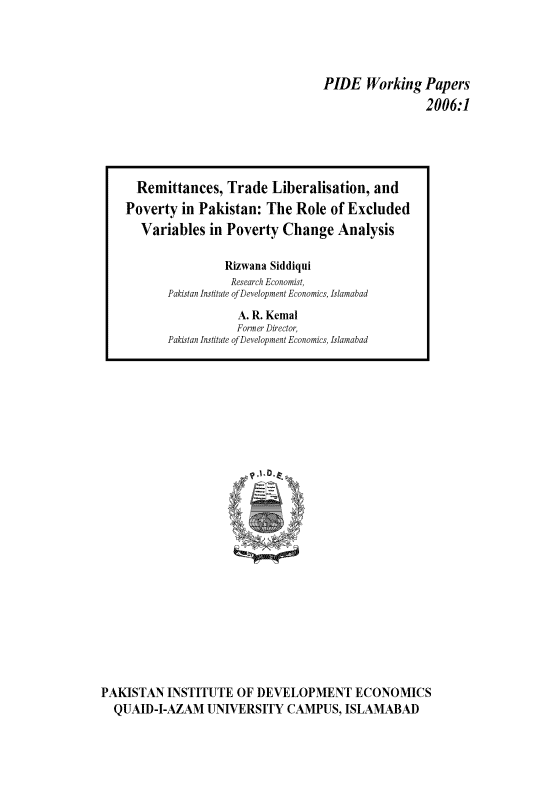
Pakistan Institute of Development Economics
- Home
Our Portals
MenuMenuMenuMenuMenuMenuMenu - ResearchMenuMenuMenuMenuMenuMenuMenu
- Discourse
- The PDR
- Our Researchers
- Academics
- Degree Verification
- Thesis Portal
- Our Portals
Remittances, Trade Liberalisation, and Poverty in Pakistan: The Role of Excluded Variables in Poverty Change Analysis (PIDE Working Papers 2006:1)
This study attempts to assess the impact of two shocks—trade liberalisation and a decline in remittances from abroad—on poverty in Pakistan using a CGE framework. It is found that tariff reduction in the absence of a decline in remittances reduces poverty, as measured by the head count, poverty gap, and severity ratios (FGT indicators) in both the rural and urban areas of Pakistan. In terms of welfare, all households appear to gain. The results show that the gain in welfare is larger for urban households than for rural households. In addition, poverty reduced by a larger percentage in urban households than in rural households. We conclude from this that trade liberalisation reduces the gap between urban and rural households.



